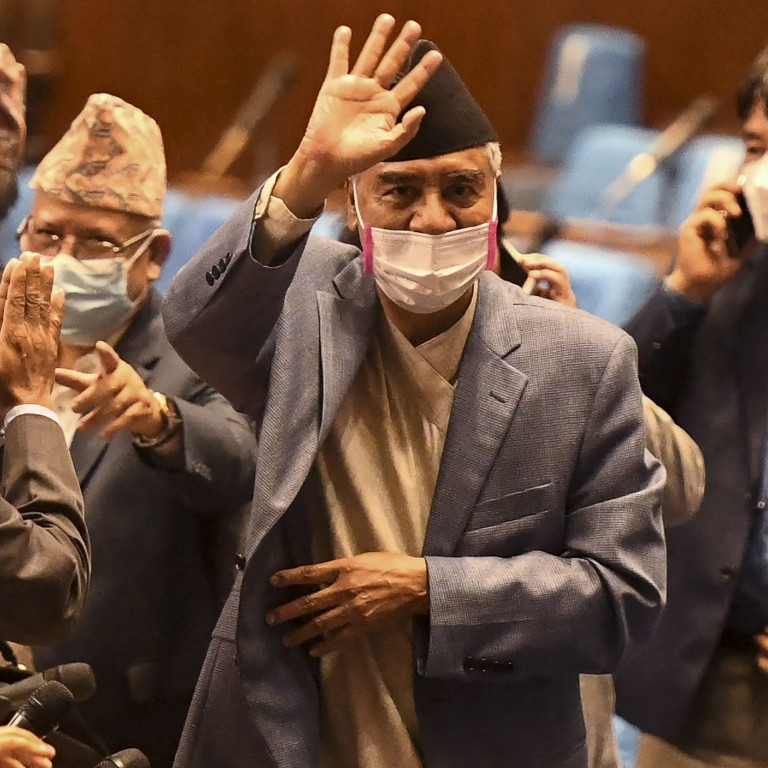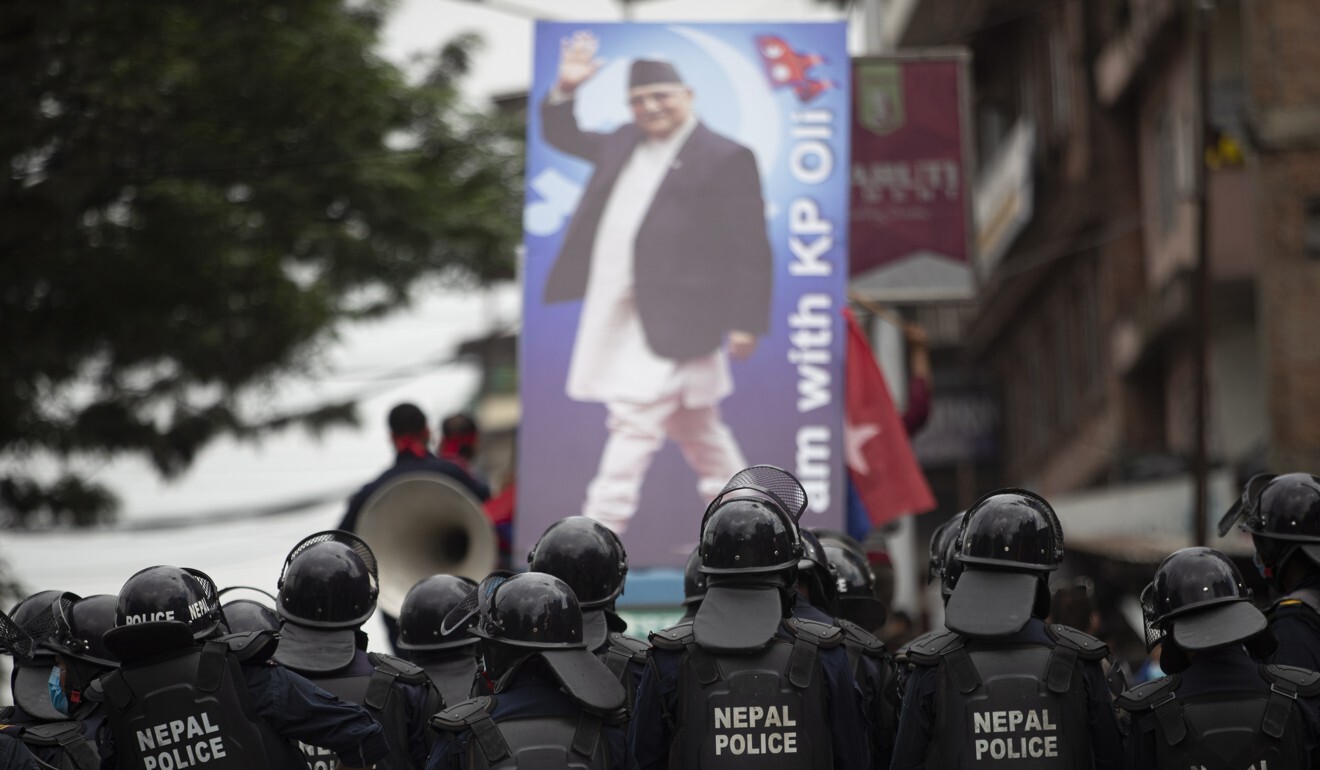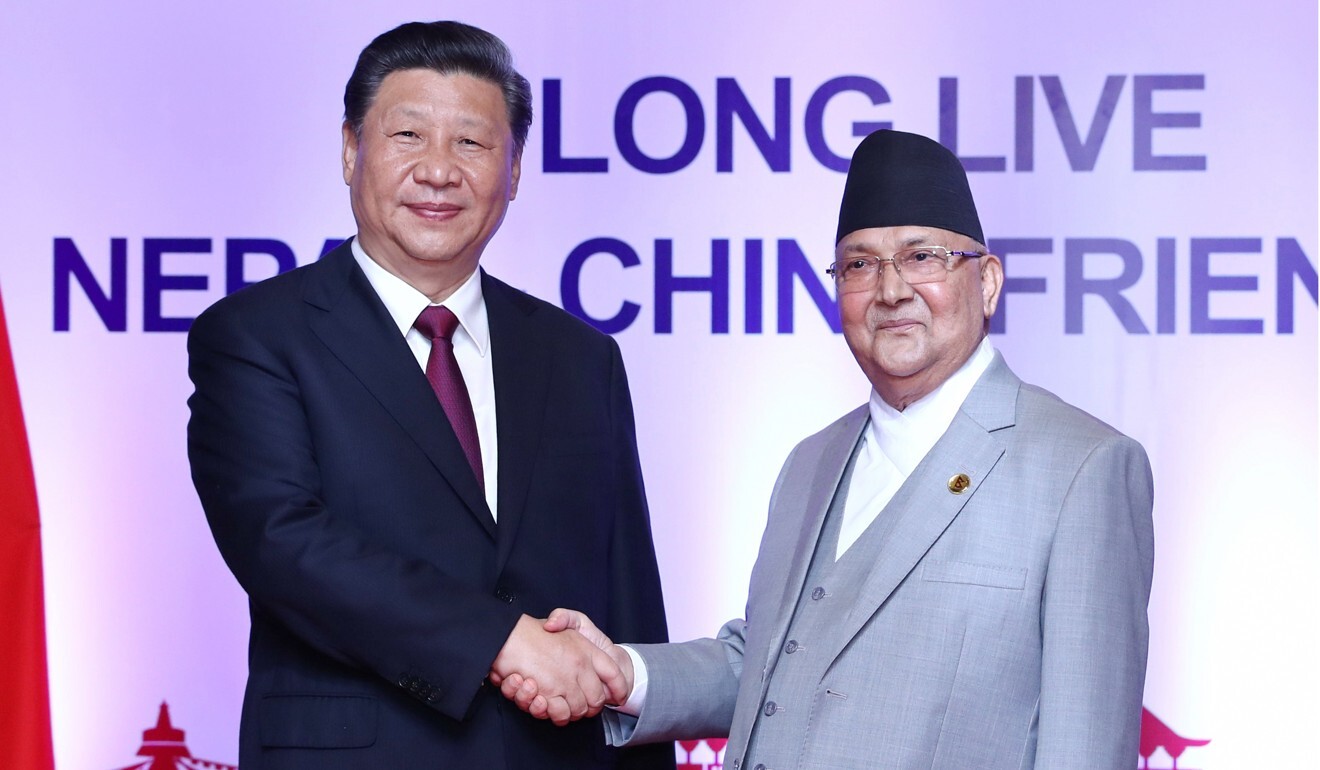
Will Nepal’s new ‘pro-India’ prime minister hit reset on its China ties?
- Sher Bahadur Deuba’s appointment is widely expected to bring Kathmandu closer to New Delhi once more after his predecessor favoured ties with Beijing
- Analysts say the 75-year-old four-time former leader will strive for diplomatic balance, while also strengthening ties with the US and its allies
Oli, in power since 2018, had twice tried to dissolve parliament in recent months amid battles with senior leaders of his own party. Both attempts were overturned by Nepal’s Supreme Court, however, which on July 12 removed Oli from his post.
Deuba – who was previously appointed prime minister in 1995, 2001, 2004 and 2017, but has never served a full term – is widely expected to bring Nepal closer to India once again after Oli favoured ties with China, its other giant neighbour to the north.
His appointment was confirmed on Sunday, when he won a crucial vote of confidence in parliament allowing him to continue in power until general elections set to be held next year.
In the balance

“High priority” would be given to neighbourly relations, Wagle said, adding that the change of government offered a window of opportunity for New Delhi and Kathmandu to improve ties following Oli’s exit.
Is China about to start a ‘Himalayan Quad’ with Nepal, Pakistan and Afghanistan?
Ranjit Rae, a former Indian ambassador to Nepal, told This Week In Asia he anticipated ties to be “less rocky” under Deuba, whose party, the Nepali Congress, “has traditionally been a friend of India’s”.
Delhi was “generally more comfortable” seeing the 75-year-old back in power as it was thought he would not do anything against Indian interests, Rae said, adding that his term would be more sensitive to New Delhi’s concerns, “provided he can manage his coalition partners”.
Binoj Basnyat, a retired major general in the Nepalese Army, said shared “democratic credentials” would incline Deuba to seek closer ties with India. Even China’s state-backed nationalist tabloid the Global Times has acknowledged that Deuba is a “pro-India leader”.
It may not be so clear cut, however. A diplomatic source in Kathmandu who spoke on condition of anonymity said Delhi’s diplomats would have to fight the perception that India had interfered in Nepal’s political crisis, after Samant Goel, an Indian intelligence officer, held a series of hush-hush meetings in the country in October with Oli, Deuba and other opposition politicians.

“From being at loggerheads with Oli, the Indian establishment, by the end, seemed to have been backing Oli,” the source said. “This hasn’t gone unnoticed in Kathmandu and Deuba will be sure to have taken note.”
Hou, the Chinese ambassador to Nepal, also held a series of meetings with Nepalese politicians while Oli was prime minister, in a move widely seen as an effort to unite the pro-China former leader’s faction-ridden ruling alliance.
Pandemic test
The first real foreign policy test for Deuba’s new administration will come from its handling of the pandemic and sourcing of vaccines, said Basnyat, the retired army officer.
Nepal reported more than 2,200 new Covid-19 infections on Tuesday, taking its total cases to more than 672,000, including over 9,600 deaths, in a nation of 29 million.
“Vaccine diplomacy will be a priority,” Basnyat said, adding that “as commitment to the people of Nepal … Deuba’s expectation of India and other democracies will be [for Nepal to take] precedence” in the distribution of medical equipment and vaccines.
Battle of wits brews in Nepal as US, China, India ramp up support
As of last month, Nepal had received some 1.8 million doses of China’s Sinopharm vaccine in the form of donations, and agreed to purchase 4 million additional shots.
Some 1.5 million doses of the Johnson & Johnson vaccine, donated by the US through the World Health Organization’s Covax Facility, arrived in the country last week – on the same day that Nepal’s Supreme Court order reinstated parliament. The following day, US ally Japan announced it would send 1.6 million AstraZeneca shots to Nepal as well.
While it is still too early to know for sure what Deuba’s main foreign policy priorities will be, he has in the past indicated a willingness to prioritise Nepal’s ties with the US.
In April, while still in opposition, he gave his backing to an agreement for a US$500 million infrastructure grant from US foreign aid agency the Millennium Challenge Corporation (MCC) – which has been viewed with suspicion by some in Kathmandu, who see it as a direct counter to China’s Belt and Road Initiative, from which Nepal has also benefited.
Wagle, the Kathmandu-based scholar of international relations, said that he thought Deuba was likely to accord “high priority” to the MCC agreement’s implementation now he was in power.
Additional reporting by Associated Press

